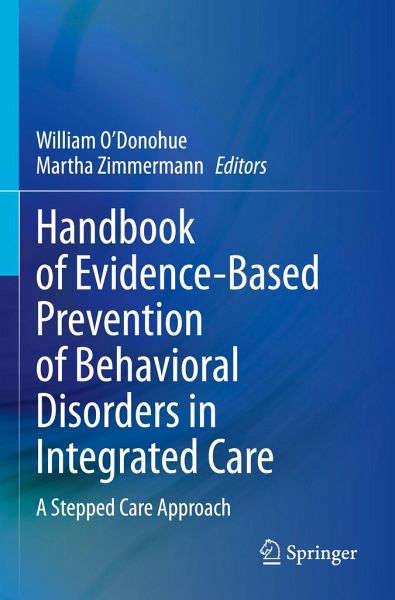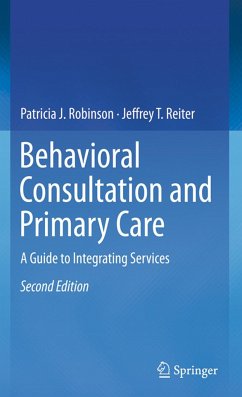
Handbook of Evidence-Based Prevention of Behavioral Disorders in Integrated Care
A Stepped Care Approach
Herausgegeben: O'Donohue, William; Zimmermann, Martha
Versandkostenfrei!
Versandfertig in 6-10 Tagen
76,99 €
inkl. MwSt.

PAYBACK Punkte
38 °P sammeln!
This handbook is a comprehensive, authoritative and up-to-date source on prevention technologies specifically for integrated care settings. It covers general issues related to prevention including the practical issues of financing, and staffing, and a general introduction to the advantages of prevention efforts. It covers a range of behavioral health disorders using an approach that is most relevant to the practitioner: it provides basic definitions, and describes the specific roles of both the primary care provider (PCP) and the behavioral care provider (BCP) as well as specific resources pre...
This handbook is a comprehensive, authoritative and up-to-date source on prevention technologies specifically for integrated care settings. It covers general issues related to prevention including the practical issues of financing, and staffing, and a general introduction to the advantages of prevention efforts. It covers a range of behavioral health disorders using an approach that is most relevant to the practitioner: it provides basic definitions, and describes the specific roles of both the primary care provider (PCP) and the behavioral care provider (BCP) as well as specific resources presented in a stepped care model. Stepped care has been used sucessfully in medical settings. Adapted to behavioral health settings, It allows the clinician and the patient to choose treatments that are tailored to specific levels of intensity. This handbook is an interdisciplinary resource useful for classes in integrated care as well as for clinicians employed in in these settings.














